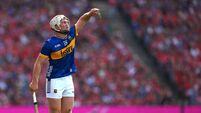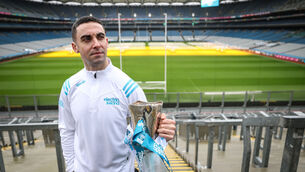‘Winning an All-Ireland is something you put on your CV. But more important is what this experience puts into their being’

Upstairs in the Cork Institute of Technology student centre, a picture of the college’s 2009 Sigerson Cup winning team hangs on the wall outside Keith Ricken’s office.
The CIT GAA development officer doesn’t need to count the number of players in the picture. He knows the 33 of them by name.













